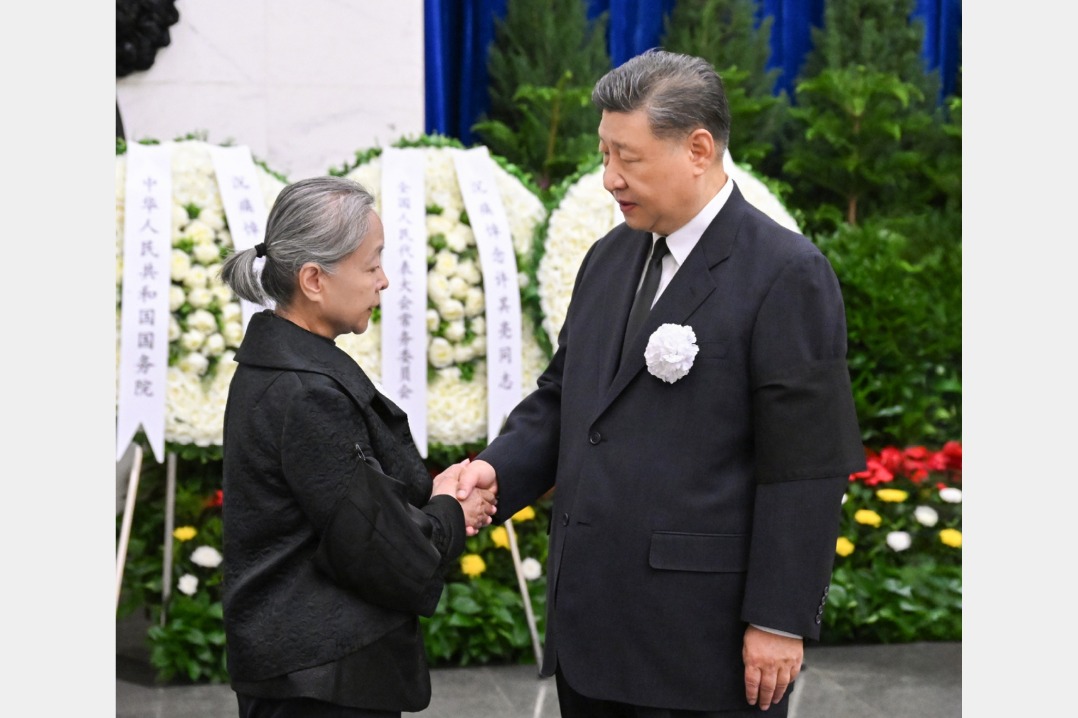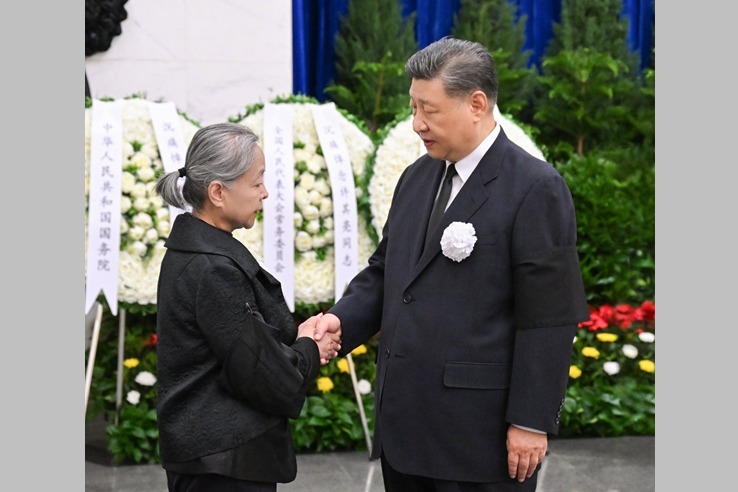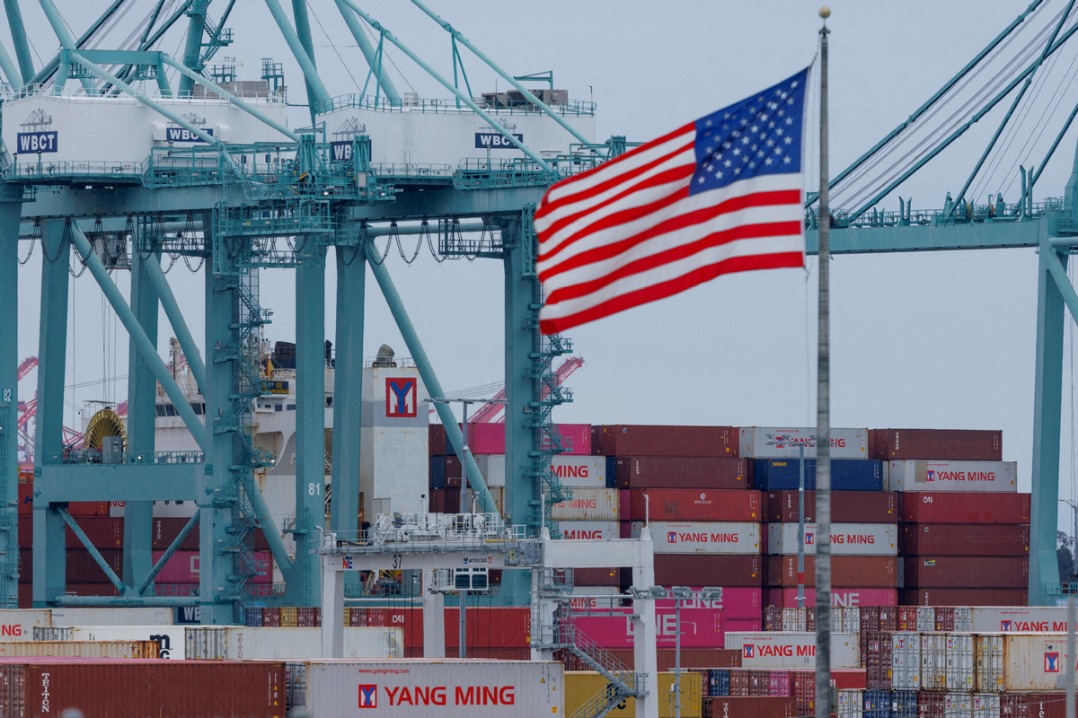Oceans of hope


France, China and the EU share points of convergence on protection of the environment, biodiversity and marine ecosystems
The 2025 United Nations Ocean Conference, the largest conference on the oceans slated for June 9 to 13 in Nice, France, has a clear mission: to support the implementation of Sustainable Development Goal 14; and conserve and sustainably use the oceans, seas and marine resources for sustainable development. The conference is set to endorse an action-oriented declaration — the Nice Ocean Action Plan.
It will involve all relevant stakeholders, bringing together governments, the UN system, intergovernmental organizations, international financial institutions, other interested international bodies, nongovernmental organizations, civil society organizations, academic institutions, the scientific community, the private sector and delegations from various cities around the world to assess challenges and opportunities relating to, as well as actions taken toward, the implementation of Goal 14.Among the cities, five are from China: Shenzhen, Shanghai, Xiamen, Qingdao and Zhanjiang.
This year has seen active dialogue on climate change between France and China. In March, the two countries issued a joint statement to commemorate the 10th anniversary of the Paris Agreement, reaffirming their commitment to multilateralism and cooperation in addressing global challenges. The statement emphasized the need for appropriate solutions to significant issues within a multilateral framework. As permanent members of the UN Security Council, China and France are seen as responsible for demonstrating leadership and enhancing strategic coordination.
Recently, I had the chance in the French embassy in Beijing to talk with Agnès Pannier-Runacher, France's minister for ecological transition. Pannier-Runacher said Chinese officials reaffirmed that China would continue to uphold the objectives outlined in the Paris Agreement and collaborate with all parties to achieve positive outcomes at the 30th session of the Conference of the Parties to the United Nations Framework Convention on Climate Change later this year in Brazil. In line with the joint statement from China and France on enhancing biodiversity and ocean cooperation — from Kunming-Montreal to Nice — China will assist France in hosting a successful UN Ocean Conference with the utmost ambition.
China has solidified its status as a global leader in biodiversity conservation through decisive and impactful actions. By enhancing the protection of endangered species and ecosystems, as well as contributing to significant global environmental agreements — including those related to biodiversity — China's accomplishments highlight its steadfast commitment to the UN Convention on Biological Diversity and its vision of fostering an ecological civilization.
A key factor in China's success is its crucial role in bringing together over 190 parties to endorse the Kunming-Montreal Global Biodiversity Framework at the 2022 UN Biodiversity Conference. Domestically, China's ecological conservation redlines (ECRs) — an innovative spatial planning mechanism — have become a transformative model for balancing ecological protection with sustainable development. This initiative designates over 30 percent of the country's terrestrial territory as ecologically critical zones.
The ECRs' emphasis on real-time monitoring via satellite remote sensing and artificial intelligence-driven governance platforms sets a new standard for transparency and enforcement, narrowing the gaps in global ecological conservation. It not only propels China's progress toward the "30X30" target (a worldwide initiative for governments to designate 30 percent of the Earth's land and ocean area as protected areas by 2030) but also positions the country as a leader in redefining ecological governance.
Besides, China has turned its ecological commitments into concrete results through extensive, science-based initiatives.
With the 2030 deadline for global biodiversity targets on the horizon, China's vision of an ecological civilization — emphasizing harmony between humans and nature — serves as a beacon of hope. From restoring forests that buffer against climate disasters to helping revive once endangered species' populations, China's contributions to global environmental protection and biodiversity conservation demonstrate that environmental stewardship and sustainable development are not competing goals but mutually reinforcing imperatives. In a time of rising ecological crises, China's experience demonstrates that collective action, driven by policy and a scientific approach, can pave the way for a flourishing planet.
Safeguarding fragile ecosystems requires urgent action, and China's commitment to an ecological civilization has led to significant progress in resources management and conservation during the 14th Five-Year Plan (2021-25), with protected areas now covering 18 percent of its land. Leveraging technologies such as AI is crucial for addressing biodiversity challenges, as it can analyze ecological data to enhance conservation efforts. The UN Development Programme has helped over 50 countries use AI to align national policies with global biodiversity goals.
In January, China updated its National Biodiversity Conservation Strategy (2023-30) to align with the Kunming-Montreal Global Biodiversity Framework. For example, China's promotion of marine ecosystem protection has led to a net increase in mangrove coverage to 29,200 hectares. In Zhanjiang, local and municipal efforts in mangrove conservation and the protection of Chinese white dolphins have successfully enhanced biodiversity and coastal ecosystems.
China and the European Union are also aligned in tackling climate change challenges. On May 6, President Xi Jinping congratulated EU leaders on the 50th anniversary of the establishment of diplomatic relations, emphasizing cooperation in addressing global issues. The China-EU green partnership could exemplify their shared vision for ecological sustainability. As key players in global climate governance, both sides must demonstrate ambition in renewable energy development this year. Looking ahead to COP30, greater coordination and collaboration on carbon markets and green projects are anticipated. Innovations in life sciences with AI enable the processing of extensive environmental data, revealing critical patterns and overcoming silos and barriers to conservation.
However, challenges such as protectionism could threaten China-EU green cooperation. Constructive dialogue is essential to address mutual concerns and promote economic development.
Innovative finance is crucial for addressing ocean crises and enhancing resilience. An estimated $175 billion annually is needed for a sustainable marine economy, requiring cooperation among various stakeholders. The Blue Economy and Finance Forum at UN Ocean Conference 2025 will focus on attracting investments for ocean sustainability. Protecting the ocean is a global responsibility that supports livelihoods and economies while promoting a sustainable blue economy through innovative investment and policies.
The ocean, covering over 70 percent of the Earth's surface, remains uncharted. It is crucial for our future, and together we can make the third UN Ocean Conference a significant milestone. Ten years after the Paris Agreement, countries must reaffirm multilateral cooperation to meet climate objectives and tackle climate change with real actions.
As leading G20 nations, France and China can uphold global climate governance and advance collective commitments by defining ambitious decarbonization plans supported by credible implementation strategies. Immediate and collective action is essential to safeguard our planet and transform ambition into tangible results for a sustainable future.
The scale of the global crisis shows that no nation can act alone. France and China's commitment to an ecological civilization offers vision and opportunities to assist developing countries in adopting nature-positive strategies through shared experiences, biodiversity conservation, knowledge, low-carbon technologies, and funding via international collaboration.
The author is executive vice-president of the French Chamber of Commerce and Industry in China, co-founder and director of the board of the Zhanjiang Chinese White Dolphin Foundation and a member of the board of the Zhanjiang Mangrove Protection Foundation. The author contributed this article to China Watch, a think tank powered by China Daily.
The views do not necessarily reflect those of China Daily.
Contact the editor at editor@chinawatch.cn.

































